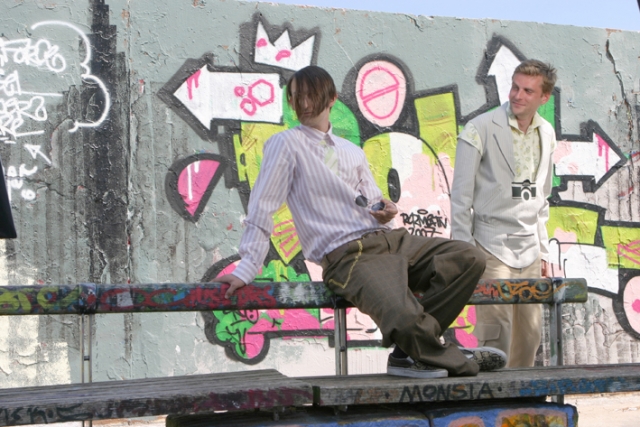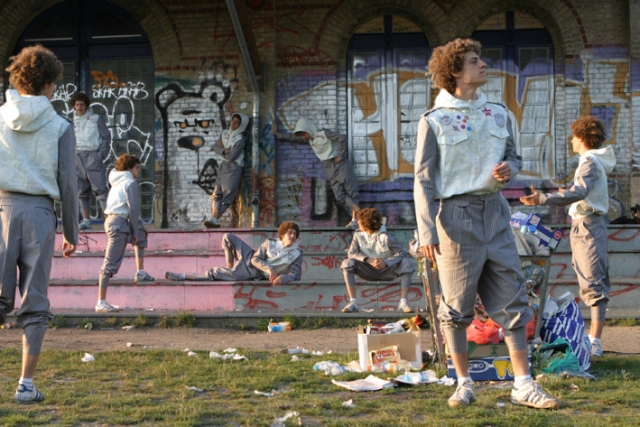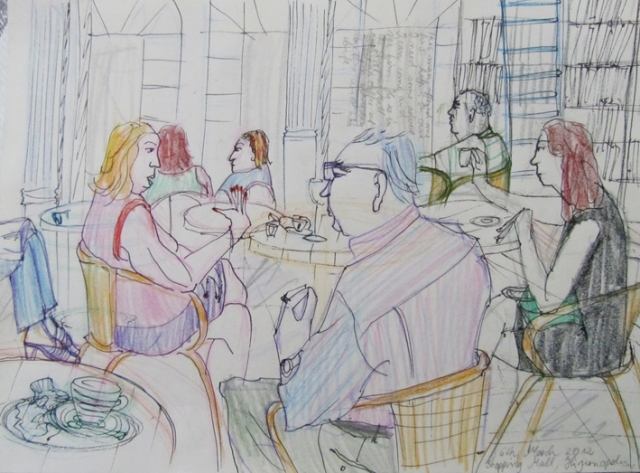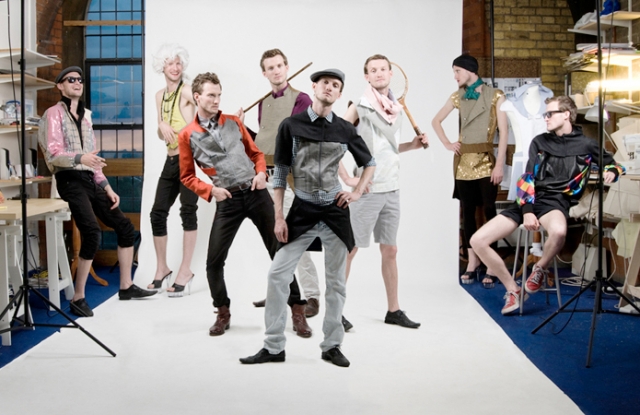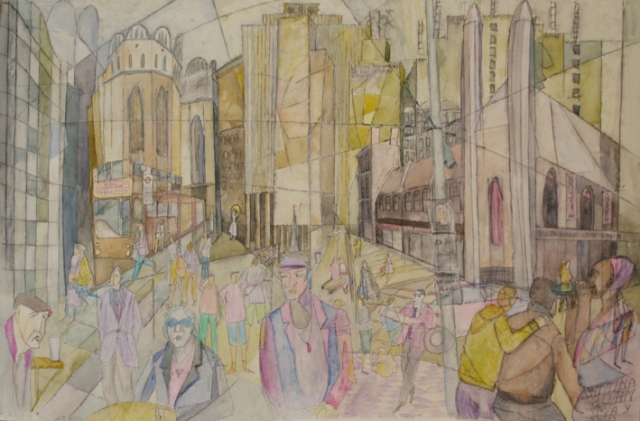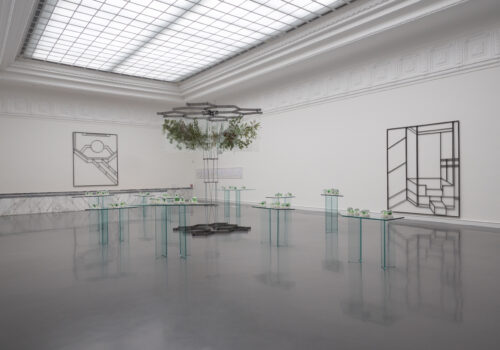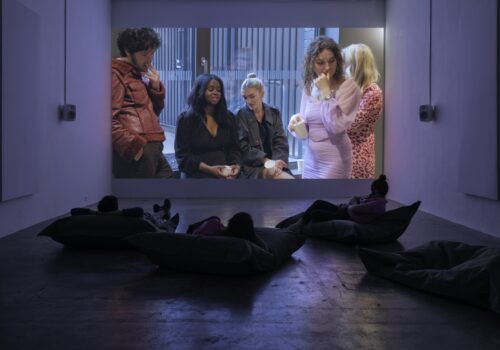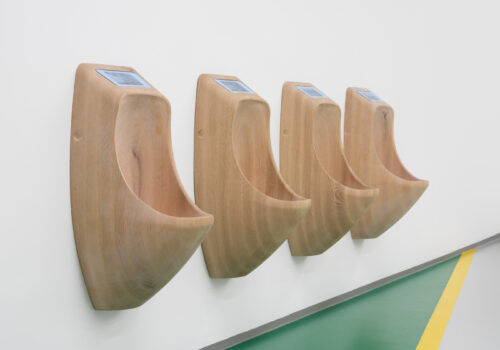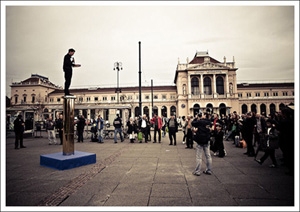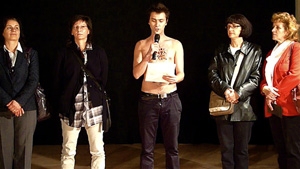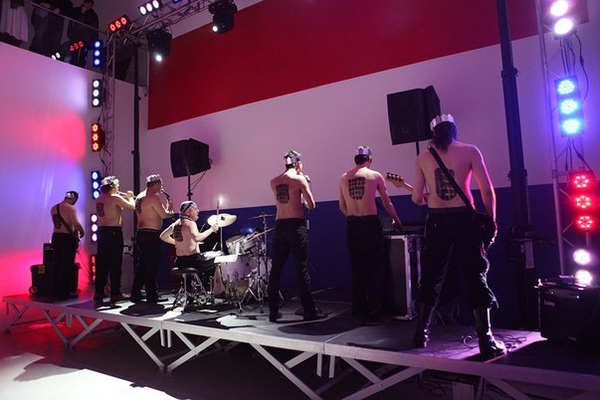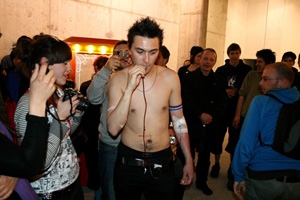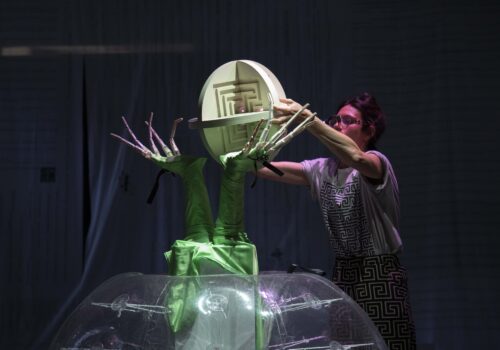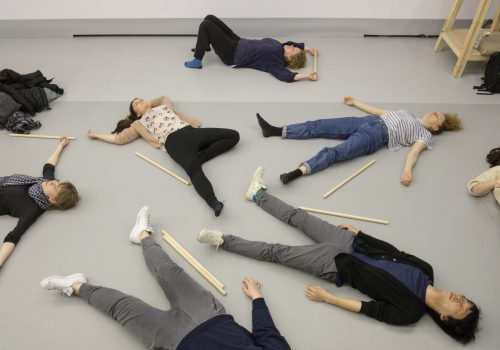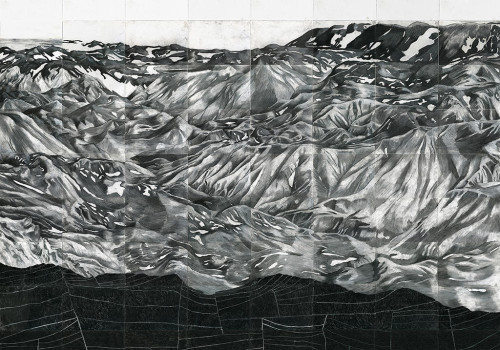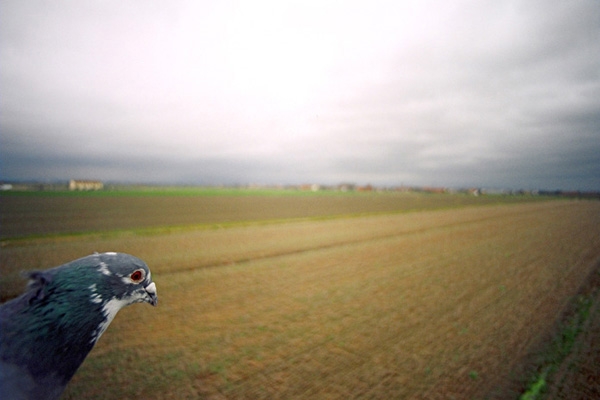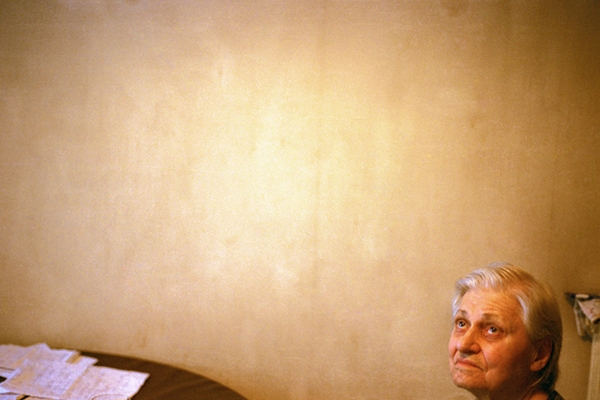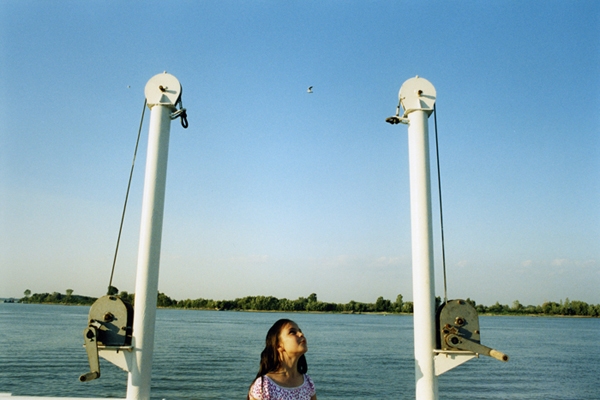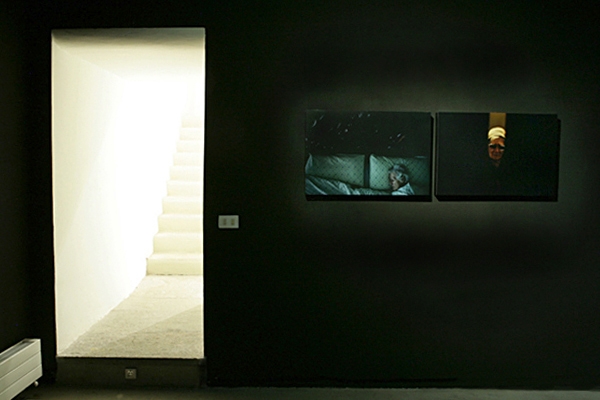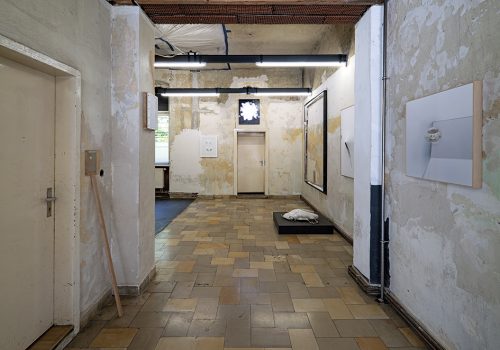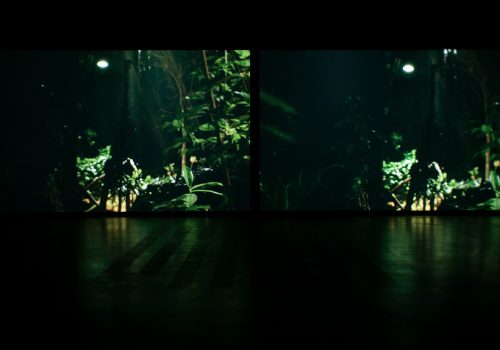Past Residents
Past Resident2012: Kunststiftung des Landes Sachsen-Anhalt
Bettina John
Bettina John’s work explores her fascination with the ever-growing importance of the world’s largest cities and what they mean to the individual experience. She looks at how people manifest their identity in their appearance as well as what is behind that surface and investigates the insecurities a global life brings about, as well as displacement, isolation, anonymity and the construction of one’s image.
Bettina John (born 1981) lives and works between London and Halle, Germany. After graduating from Burg Giebichenstein, she expanded her practice into the field of performing arts. During her master studies at Goldsmiths University in 2009 she met two artists whom she continues to collaborate. Together they showed at live – and performance – art events such as the Stockholm Theatre Festival Stoff and the Accidental Festival in London and participated in several group exhibitions across the UK.
Residents from Germany
Past Resident2012: Foundation for a Civil Society2011: Foundation for a Civil Society
Marko Markovic
Marko Markovic’s work is interested in the transformation process between the individual and the masses; when an individual becomes a mass or when the mass becomes an individual. In doing so, he animates and includes audiences and/or other participants, working with varying age groups and socio-economic classes. Markovic’s work is socially engaged and directly involved with people and their needs, consciousness and social structure. He sees this as the best method to directly impact his public audience. Markovic’s work reflects current events and questions the structure of politics, economics, status and positions of inferiority and superiority. He uses a variety of media, including video, installation, performance and happenings.
Marko Markovic (born 1983, Osijek, Croatia) lives and works in Zagreb and graduated from the Art Academy in Split, Croatia in 2007. He has participated in exhibitions, workshops and festivals in Croatia, USA, Russia, Mexico, Finland, Algeria, Bosnia and Herzegovina, Kosovo, Italy, Greece, Serbia and Austria. In 2011, he was awarded the Radoslav Putar Award for best young visual artist in Croatia by the Institute for Contemporary Art and the Young Visual Artists Awards. Markovic also works as the organizer of Days of Open Performance in Split and is the front man in a performative art punk band, Elijah and the Grain.
Residents from Serbia
Past Resident2012: SEAT Pagine Gialle S.p.A.
Simone Martinetto
Simone Martinetto’s practice consists of photography and installations. His work is an investigation on the importance of memory, freedom, coincidences and dreams. Martinetto has created a new form of narrative, using an original photographic language to tell small stories with symbolic meanings. He uses photography as a tool to examine the minds of others. Without Memory is a series of photographs and installations with the artist’s grandmother as the subject matter who lost her memory and subsequently fills her home with reminder notes. The series, Travellers, documents racing pigeons and the images they see during their return trips. Such Stuff As Dreams Are Made On is made of “talking photos” where the viewer is able to relive the dreams of other people.
Simone Martinetto (born 1980, Turin, Italy) has a degree in philosophy. He has exhibited in over 40 exhibitions in Italy and around the world, including Claudio Bottello Contemporary Gallery, Torino and Frost Art Museum, Miami. He began to practice photography when his grandfather, shortly before his death, passed on to him the camera he bought on the occasion of his birth. Martinetto works as an artist, cinematic still photographer and teacher.
Residents from Italy
Raffaela Naldi Rossano
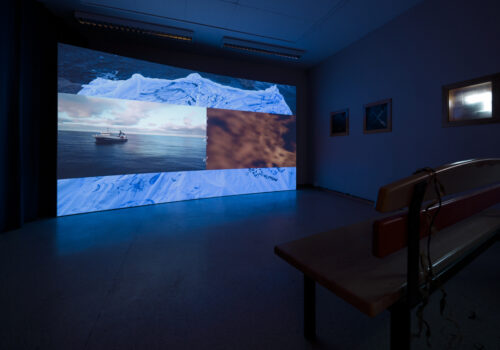
The Italian Academy for Advanced Studies, Columbia University, Italian Cultural Institute of New York, Directorate-General for Public and Cultural Diplomacy of the Italian Ministry of Foreign Affairs and International Cooperation, Directorate-General for Contemporary Creativity of the Italian Ministry of Culture
2024
